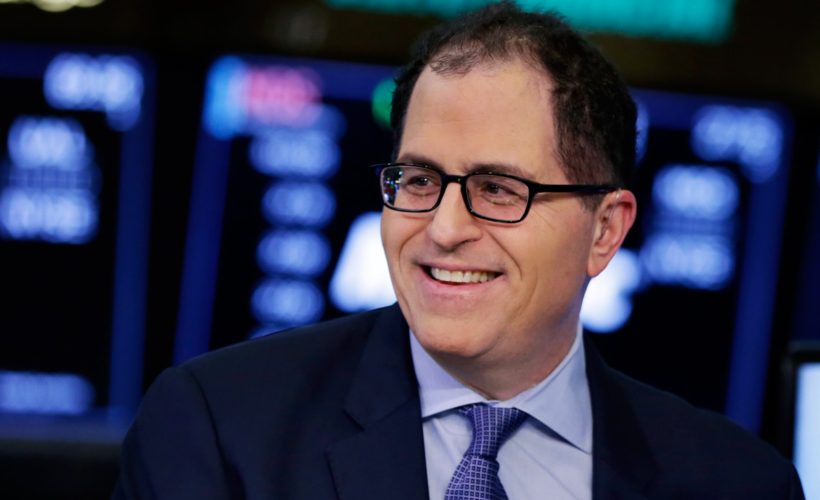Dell Technologies is going public again, five years after going private to transform itself amid slowing personal computer sales. Dell has certainly changed in those years, but it needs to change even more if it doesn’t want to find itself back in the same position.
Since going private, Dell has invested heavily in expanding its business selling hardware, software, and services for data centers. In 2016, it paid a record breaking $67 billion for the storage hardware giant EMC, including EMC’s stakes in business software companies VMware and Pivotal, which will remain independent. In filings with the Securities and Exchange Commission, Dell now describes itself as “a strategically aligned family of businesses.” One thing hasn’t changed: Founder and CEO Michael Dell owns a controlling stake in the company.
The EMC deal helped Dell withstand slowing sales of personal computers. In its fiscal year ended Feb. 2, revenue in Dell’s “Client Solutions Group” was slightly less than three years earlier. But revenue in the “Infrastructure Solutions Group,” which sells to businesses, more than doubled, as did Dell’s overall operating-segment income.
So why return to the public market now? During a conference call, Dell CFO Tom Sweet said the deal will simplify the company’s ownership structure and “enable Dell Technologies to grow into an even stronger company.”
Dell is going public in a relatively strong position, says Craig Lowery, a research director at the industry analysis firm Gartner and former Dell executive. But there’s a good chance it won’t be in such a strong position in the future as cloud computing eats into its data center business.
Lowery says organizations are continuing to spend more money on information technology, and that’s been great for Dell. But the current trend is towards taking advantage of cloud computing services from providers such as Amazon Web Services or Salesforce, rather than building new data centers to host business applications. Of course, those cloud computing companies need servers and storage themselves, but they’re increasingly designing their own custom hardware, which they buy from some of the same manufacturers that Dell does. Lowery says there’s little opportunity for Dell to get back into the market of selling servers to cloud computing providers.
Dell’s software business should, in theory, help make up for that. But it has trouble on that front as well. VMware led a revolution in virtualization, which enabled companies to run multiple “virtual machines” on a single computer or server. But companies are now turning to a technology called containers that makes it possible to pack more applications on a single machine. VMware offers some container technology. But Lowery says the real problem for the company are new types of cloud computing services, such as Amazon’s Lambda, which enable developers to run small bits of code in the cloud without virtual machines or containers. That could lead companies to build software and run software in the cloud in ways that don’t rely on VMware technology, Lowery says.
“Containers are just another take on virtual machines, they’re not that different,” he says. But services like Lambda “are truly disruptive, they change the game.”
In a statement, a Dell spokesperson said the company “is well positioned to shape and grow within these integrated and related trends.”
Dell’s future will depend on catching the next trend in computing. Like many others, Lowery predicts that will be the Internet of Things, and he says Dell has some opportunities there, particularly in what’s being called “edge computing.”
The idea is that instead of having sensors and gadgets upload all of their data directly to the cloud, some data would be processed either on those devices themselves, or on nearby servers before being uploaded to the cloud. For example, a manufacturing company that wants to monitor its equipment might send the data generated by those machines to a server in its factory instead of piping all that data directly to the cloud.
Dell and VMware offer edge computing products, but Lowery says it’s a very small part of the companies’ business. To grow, Dell is going to have to work with the cloud computing companies that stand poised to eat so much of its existing business, not compete against them.
More Great WIRED Stories
- PHOTO ESSAY: Think these are flowers? They’re fireworks
- How Tesla is building cars in its parking lot
- Copying nature to make fantastical machines
- How technology helped me cheat dyslexia
- The next generation of Wi-Fi security will save you from yourself
- Hungry for even more deep-dives on your next favorite topic? Sign up for the Backchannel newsletter
Source:WIRED











